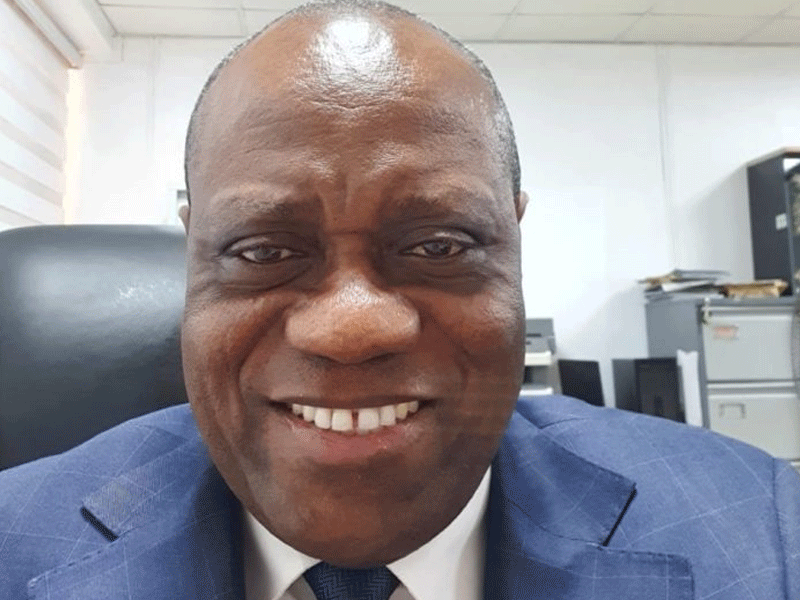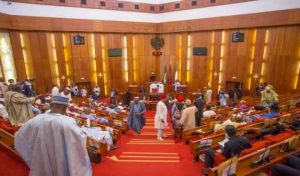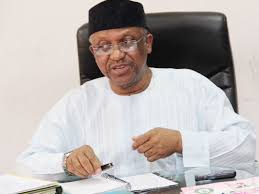NBS collaborates with institutions on employment survey

By Daniel Adaji
The Statistician-General of the Federation and Chief Executive Officer, National Bureau of Statistics, Prince Semiu Adeyemi Adeniran, has announced that the Nigeria Labour Force Survey (NLFS), which captures the state of employment in Nigeria, has undergone more notable changes from the previous rounds.
According to the NBS boss, NLFS is a strategic survey designed to collect and analyse labour market statistics for the country, including the generally understood and widely anticipated headline unemployment and underemployment rates.
NLFS, however, has recorded more significant changes from the way it was being implemented previously
He said, while the unemployment and underemployment rates are very important figures that indicate the number of persons economically engaged, the NLFS contains a lot more equally interesting and important information that offer useful insight into the health of the labour market in Nigeria.
Adeniran made this known at the national sensitization workshop for the Nigeria Living Standards Survey and the Nigeria Labour Force Survey, held at the International Conference Centre, Abuja, on the November 24, 2022.
The survey was conducted over a 12-month period to capture the seasonality in household consumption expenditure and was adjudged to be one of the best quality surveys to be conducted by the Bureau and its results were widely accepted and acknowledged both locally and internationally.
He said the major change made to the current round of the NLFS was the use of newly carved out digital enumeration area maps from the National Population Commission, for the selection of clusters and subsequent household listing. There was also the addition of new questions and modules on Remittances, Migration and Absentee Household members, Migration Aspiration, Social Cohesion, Petrol Subsidy, and Subjective wellbeing to the NLSS survey questionnaire.
“The NLFS, however, has recorded more significant changes from the way it was being implemented previously,” he said.
“Today marks yet another milestone in the development journey of the National Bureau of Statistics and by extension, the Statistical System in Nigeria. Here we are today, sensitizing the public on the conduct of yet another Nigeria Living Standards Survey, commonly called the NLSS, and the newly enhanced Nigeria Labour Force Survey, (NLFS).
“As many of you know, in 2020, NBS announced the results of the 2018/19 Nigeria Living Standards Survey (NLSS), which provided the first official estimates of poverty and welfare in Nigeria, since 2010. The report recorded a headline national poverty rate of 40.1 percent, and collected detailed information on household consumption, education, health, employment, housing conditions, and other key non-monetary indicators of welfare. This round of the NLSS is a follow-up to that one, keeping pace with the expected 4–5-year frequency.” He said.
“Aside the use of the digital Enumeration Area maps mentioned earlier, with a fresh quarterly listing of selected Clusters to avoid attrition, this new approach involves data collection from a carefully selected sample of over 35,000 households, spread over a period of 12months, instead of the large 33,000 sample surveyed every quarter.
“It also involved the use of a streamlined workforce and an enhanced quality assurance mechanism, enabled by technology, built into the process. Additionally, new questions on persons employed but not at work, long-term unemployment, job satisfaction, discouraged job seekers, and information on decent work, are all included in the revised instrument.
“This new method of continuous data collection for the NLFS will now produce headline national estimates of unemployment and other interesting labour force data, using the new hourly definition of one hour a week. While fully disaggregated, state-level estimates will be generated at the end of 12-months of data collection.
With this new concept and approach of conducting the NLFS, Nigeria will not only be setting a new standard in Africa for the conduct of the Labour Force Survey, but more importantly, we will be introducing a mechanism that will allow for the sustainable and uninterrupted reporting of labour market statistics in Nigeria, eliminating the observed gaps that usually plagued the old approach.
Both of these surveys have been Pretested and Piloted
This is a major deal for the country, as we will be ensuring that government and indeed the public, always has reliable information on the health of the labour market, to support all the laudable initiatives and programs designed to boost employment generation in Nigeria.
“Both of these surveys have been Pretested and Piloted, each in 6 selected states in each of the geo-political zones in the country, to ensure readiness for full implementation. Extensive training for the field personnel for both surveys has also been conducted, with adequate field practical and testing of the personnel for suitability and for preparedness for the exercise.
While the NLFS is already in the field collecting data in selected households across the country, the fieldwork for NLSS will equally commence tomorrow, Friday 25th November 2022, in all the 36 States and the Federal Capital Territory.”
He expressed his gratitude to President Muhammadu Buhari for support received in the course of the survey. The Statistician General highlighted the need for gate keepers to enlighten their people on the need to avail themselves and cooperate with the NBS during socio-economic surveys.
“I want to encourage all participants; most especially representatives from the state ministries of local government and chieftaincy affairs, to kindly support us in sensitizing your people about the conduct of these surveys. Through your extensive network and contact with your traditional institutions and local communities in your respective states, I ask that you adequately inform them of the need to cooperate and provide the information required as accurately as possible,” he said.
The Insight Report
Nigeria Coverage



